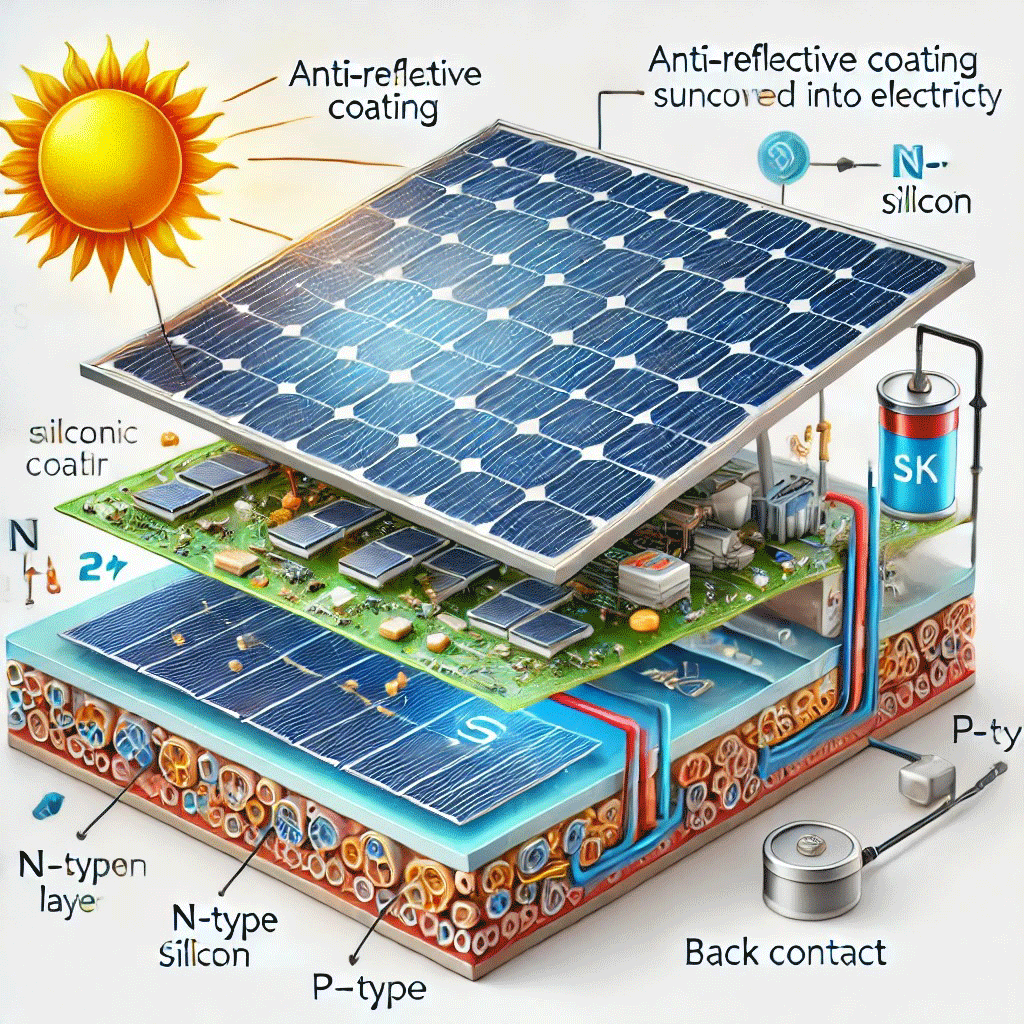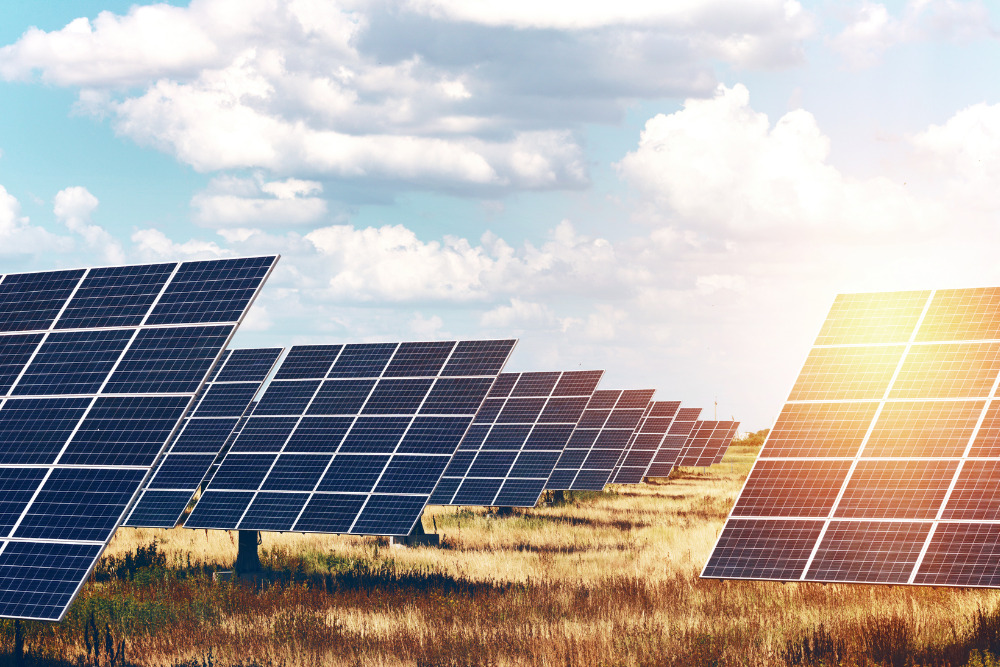Simply Solar Illinois: The Go-To Choice for Trusted Solar Energy
Wiki Article
Exactly How Solar Energy Can Assist You Conserve Money and Minimize Your Carbon Footprint
The assimilation of solar power into your power portfolio offers a compelling possibility for both monetary savings and ecological stewardship. As various federal government incentives come to be offered, the inquiry develops: how can one properly browse the initial financial investments and ongoing advantages of solar innovation to make best use of both economic and environmental gains?Comprehending Solar Energy Cost Savings
While the change to solar energy often entails an initial financial investment, comprehending solar power financial savings is crucial for homeowners and services alike. Solar power systems can considerably lower electrical power costs by utilizing the sunlight's power, translating into considerable lasting financial benefits. By producing their very own power, users reduce reliance on grid power, which undergoes changing rates. These financial savings can accumulate in time, commonly leading to a fast return on financial investment.Furthermore, solar power systems may get approved for numerous monetary rewards, including tax credit scores and rebates, further boosting their cost-effectiveness. The schedule of web metering enables individuals to sell excess power back to the grid, producing an additional revenue stream. These variables add to the general cost savings related to solar power.

In enhancement to route monetary cost savings, solar energy provides the included advantage of boosting home value. Houses equipped with solar panels are often much more attractive to buyers, as they promise lower energy prices - Simply Solar Illinois. Recognizing these components is crucial for anyone thinking about solar energy, as it highlights not just the potential economic gains, yet likewise the wider environmental and economic advantages of taking on eco-friendly energy services
Preliminary Expenses vs. Long-Term Conveniences
When examining solar power, it is necessary to weigh the initial costs versus the long-lasting benefits. The upfront financial investment for photovoltaic panels, setup, and associated equipment can be significant, usually varying from $15,000 to $30,000, depending upon the system size and home power requirements. This preliminary expenditure might discourage some homeowners; nonetheless, it is critical to think about the prospective financial savings in time.Once set up, solar power systems can dramatically minimize and even remove regular monthly electricity bills, bring about considerable lasting monetary advantages. Studies suggest that property owners can conserve anywhere from $10,000 to $30,000 over the life expectancy of their planetary system, generally 25 years. Additionally, several states supply rewards, tax credits, and rebates that can counter preliminary prices, making solar much more available.

Lowering Your Carbon Impact
Minimizing your carbon impact is an important factor to consider in today's eco conscious culture, and adopting solar power is just one of the most reliable methods to achieve this goal. Solar power is a clean, sustainable resource that significantly lessens reliance on fossil gas, which are significant contributors to greenhouse gas discharges.
In addition, the widespread fostering of solar technology urges the growth of eco-friendly work and sustains advancements in energy storage and effectiveness. The even more individuals and organizations spend in solar power, the better the collective reduction in carbon discharges, promoting a cleaner ambience for future generations.
Federal Government Rewards and Refunds
Taking on solar energy not just profits the atmosphere however can also lead to substantial financial savings, particularly with the accessibility of federal government rewards and rebates. Various federal, state, and regional programs are made to motivate property owners and organizations to spend in solar energy systems, making the change more inexpensive.Among one of the most prominent rewards is the Federal Financial Investment Tax Credit Rating (ITC), which enables planetary system owners to subtract a considerable percentage of the installation costs from their federal taxes. This reward has been critical in lowering the ahead of time expenses associated with solar energy systems. Furthermore, numerous states provide their very own tax credit ratings, grants, and rebates that can index further enhance cost savings.
In addition, some city governments give real estate tax exemptions for solar installations, guaranteeing that homeowners do not encounter raised home taxes as a result of their renewable power financial investments. Utility business may also offer motivations, consisting of net metering and feed-in tariffs, which permit solar power users to offer excess power back to the grid.
Selecting the Right Solar System
Picking the proper solar system is important for making the most of power effectiveness and financial advantages. The decision rests on several variables, consisting of energy requirements, budget plan, and available space. Homeowners need to begin by assessing their electrical energy consumption to establish the system dimension required for optimum performance.Following, consider the various types of solar modern technologies offered. Simply Solar Illinois. Photovoltaic (PV) panels are one of the most common, transforming sunlight directly right into electrical power, while solar thermal systems focus on home heating water. Each kind has unique advantages depending upon individual needs
Spending plan considerations are additionally critical. Preliminary installation expenses can differ considerably, so it is very important to compare quotes from numerous companies and check out financing options. Government motivations and rebates can better lower the monetary problem, making solar systems a lot more easily accessible.
Conclusion
The ecological benefits of solar energy add to lasting methods important for combating climate change. Federal government rewards improve the usefulness of solar technology adoption, encouraging a change in the direction of a cleaner, a lot more economically efficient power resource.Report this wiki page